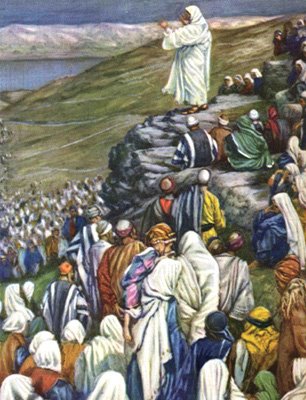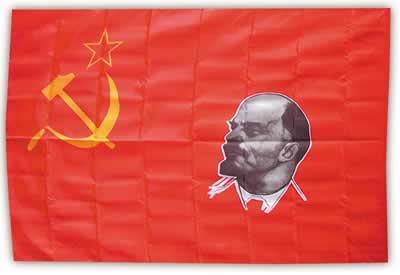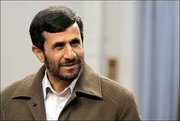

Labor day celebrations in Russia15:10 2004-04-30May 1 is Labor Day in Russia. Labor Day emerged as a public holiday in the Soviet era. It retained its status even after the collapse of the communist regime, but lost much of its ideological meaning, of course. In the Soviet era, Labor Day celebrations traditionally began with parades, with the nation's most important one held in Moscow's Red Square. Those parades were not as politically charged as ones staged November 7, the holiday commemorating the Bolshevik Revolution of 1917. Along with Soviet flags, placards with patriotic slogans, and portraits of Communist leaders, Labor Day marchers also carried flowers, balloons, and other spring-minded stuff. The festivities also involved picnics in parks and forests and firework displays. In the early 1990s, the Communist Opposition used Labor Day to protest against the new democratic government's political course. In the mid-'90s, however, the holiday came to be associated with trade unions' struggle for the rights of workers. The blue banners of trade unionists then edged out the Communists' red flags. Overtime, the general public has lost interest in May 1 rallies and parades. Many now retreat to their dachas instead, to spend the day gardening. As for political parties, they use the occasion to promote their agendas. This time around, not only activists of the Communist Party are expected to take to the streets, but also ones representing the Rodina bloc and other leftist movements that have built their platforms on social justice rhetoric. The pro-Kremlin centrist United Russia party, now holding a majority of seats in parliament, may take part as well, in order to demonstrate its care about the man-on-the-street. And the right-wingers will most probably stage rock gigs in support of democracy and civil liberties. It is highly unlikely that the Russian tradition of Labor Day rallying will become a thing of the past any time soon. With this in mind, the State Duma, or parliament's lower house, has decided to amend the controversial bill banning rallies outside government buildings and embassies. The passage of that bill in its first reading in early April sparked public outrage and was strongly criticized by Vladimir Putin. The President pointed out to Duma Speaker Boris Gryzlov that the new piece of legislation infringed on civil liberties and must be revised. Gryzlov, who leads the pro-Kremlin United Russia party, accepted Putin's criticism. He acknowledged that the ban on rallying outside government buildings was indeed "illegitimate," as "where else can they [rallies] be held to show to the government that not everyone shares its opinion." © RIAN
http://newsfromrussia.com/main/2004/04/30/53723.html
History
In Europe, the labour movement began during the industrial revolution, when agricultural jobs declined and employment moved to more industrial areas. The idea met with great resistance. In the 18th century and early 19th century, groups such as the Tolpuddle Martyrs of Tolpuddle, Dorset were punished and deported for forming unions, which was against the laws of the time.
Throughout the world, action by the labour movement has led to reforms and workers' rights, such as the 2-day weekend, minimum wage, paid holidays, and the achievement of the eight-hour day for many workers. There have been many important labour activists in modern history who have caused changes that were revolutionary at the time and are now regarded as basic. For example, Mary Harris Jones, better known as Mother Jones, was central in the campaign to end child labour in the United States during the early 20th century. An active and free labour movement is considered by many to be an important element in maintaining democracy and for economic development.
A popular bumper sticker in the United States in the 1990s was, "The labor movement; the folks that brought you the weekend."
[edit]
Development of labour movements within nation states
Historically labour markets have often been constrained by national borders that have restricted movement of workers. Labour laws are also primarily determined by individual nations or states within those nations. While there has been some efforts to adopt a set of international labour standards throughout the International Labour Organization (ILO), international sanctions for failing to meet such standards are very limited. In many countries labour movements have developed independently and reflect those national boundaries. The Australian labour movement is an example of a labour movement that has grown and existed in a particular national context.
[edit]
Development of an international labour movement
With ever increasing levels of international trade and rising influence of multinational corporations, there has been debate and action within the labour movement broadly to attempt international co-operation. This has led to renewed efforts to organise and collectively bargain internationally. A number of international union organisations have been established in an attempt to facilitate international collective bargaining, to share information and resources and to advance the interests of workers generally.
[edit]
Notes
Note 1: The American spelling is labor movement.
[edit]
Literature
Robert N. Stern, Daniel B. Cornfield, The U.S. labor movement:References and Resources, G.K. Hall & Co 1996
John Hinshaw and Paul LeBlanc (ed.), U.S. labor in the twentieth century : studies in working-class struggles and insurgency, Amherst, NY : Humanity Books, 2000
Beverly Silver: Forces of Labor. Worker's Movements and Globalization since 1870, Cambridge University Press, 2003, ISBN 0521520770
St. James Press Encyclopedia of Labor History Worldwide, St. James Press 2003 ISBN 1558625429
[edit]
List of national labour movements
Australian labour movement
Labor unions in the United States
[edit]
See also
activism industry
AFL-CIO
anarcho-syndicalism
class struggle
communism
council communism
democratic socialism
Industrial Workers of the World
eight hour day
far-left
labour history, art and culture
labour and employment law
left-wing politics
living wage
Anarchism
marxism
socialism
social democracy
unionism
[edit]
External links
Global online communication for a democratic, independent labor movement
Retrieved from "http://en.wikipedia.org/wiki/Labour_movement"
Categories: Labor Socialism Organizations Left-wing tactics and strategies



























2 comments:
Iz not like I wanted 2 take u down w. words. U messin w/ da Boss. NO gooooood. Dats why i get at you cuz i wun take this bull from noone, even ova da computer.
I was saying to Loyd at the Project Mayhem blog http://loydo38.blogspot.com/
that Jesus was a rebel and we should all endeavor to be rebels in the same way.
Loyd had managed to stir things up at a meeting of church elders when he pointed out that following rules was not the same thing as doing God's work. I say, way to go!
Your post reminded me of this.
Post a Comment